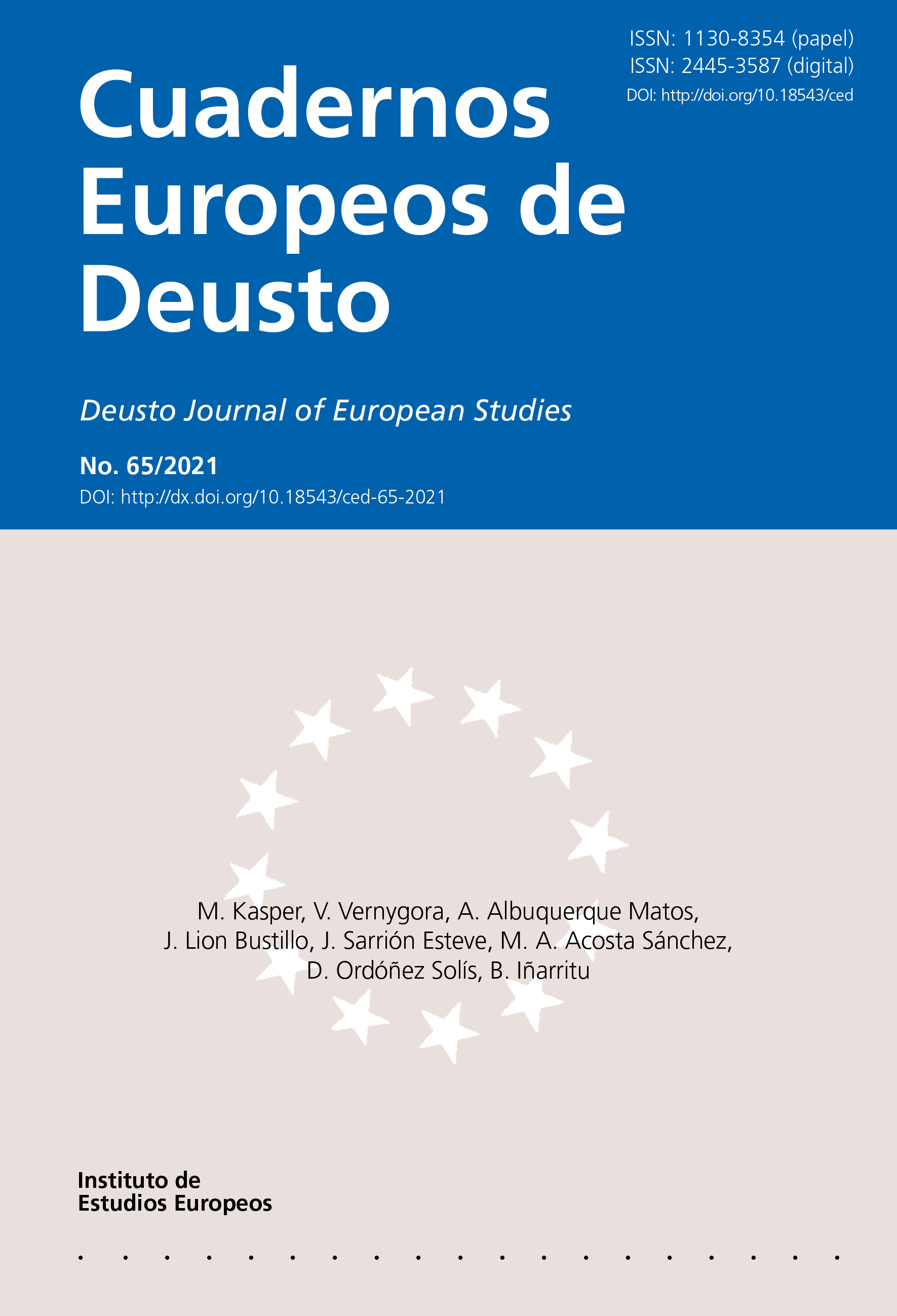Judicialization of Economic and Monetary Union: between a rock and a soft place?
Abstract
The European Central Bank has been active since the sovereign debt crisis that struck European Union Member States by putting in place several asset-purchasing programmes such as Outright Monetary Transactions and Public Sector Purchase Programme. As much as these decisions have proven the pivotal importance of this institution within the monetary union, they have also spurred controversy on potentially having exceeded the competences attributed to the Union. The german federal constitutional court heard challenges to both and requested the Court of Justice to decide on their validity within the framework of a preliminary ruling. The decision of the former court to declare the Public Sector Purchase Programme ultra vires —in this way countering the preliminary ruling decision— as well as its argumentation could produce many institutional consequences to both the European Central Bank and Court of Justice of the European Union. Finally, it has shown the limits of European Union integration and will inevitably propel discussions on which way to go in the future: it is time for this discussion to come out from courtrooms into the public sphere.
Received: 11 November 2020
Accepted: 26 May 2021
Downloads
The author grants to the Publisher the distribution, public communication, and reproduction rights of her/his work subject of publication in Deusto Journal of European Studies (DJES), whichever the media may be, including the permission to include it in the databases where this Journal is indexed and in the institutional repository of the Universidad de Deusto.
Upon its publication, the content of any Issue of Deusto Journal of European Studies (DJES) can be accessed, read, downloaded, copies, and distributed freely for non-commercial purposes and in accordance with any applicable copyright legislation.
The content of Deusto Journal of European Studies (DJES) can be subsequently published in other media or journals, as long as the author clearly indicates in the first footnote that the work was published in Deusto Journal of European Studies (DJES) for the first time, indicating the Issue number, year, pages, and DOI (if applicable). Any other use of its content in any medium or format, now known or developed in the future, requires prior written permission of the copyright holder.
The content of the work published in Deusto Journal of European Studies (DJES) is each author's sole responsibility. The authors assume the responsibility of obtaining all the necessary licenses for the reproduction in their manuscripts of any text, material or illustration coming from another author, institution or publication. The liabilities that may arise from complaints for publishing plagiarised articles are the sole responsibility of the author.


3.jpg)
2.jpg)
2.jpg)
2.jpg)
2.jpg)
2.jpg)







